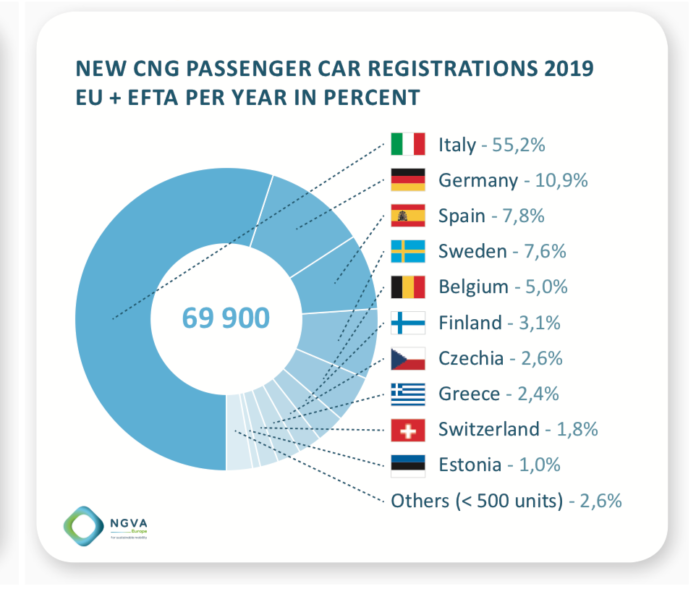The Natural & Bio Gas Vehicle Association (NGVA Europe) has released statistics about natural gas vehicle registrations and fueling station development in 2019.
The statistics not only show continuously growing sales of compressed natural gas (CNG) and especially liquefied natural gas (LNG) fueled vehicles, but also the growth of corresponding fueling infrastructure.
While there are 50% more LNG stations in Europe compared to 2018, LNG-powered heavy-duty vehicle registrations nearly tripled since the same year. At the same time, after the first quarter of 2019, where new vehicles were not available on the market due to the WLTP homologation process, passenger car registrations are at a new height.
In 2019 there were 69,900 new CNG passenger car registrations, representing a modest increase from 2018’s total of 66,031. In addition to passenger cars, 1,980 CNG buses and coaches, 2,120 CNG trucks and 4,510 LNG trucks were registered last year.
“These numbers confirm the ever-growing attraction of natural gas mobility for European consumers,” says Andrea Gerini, secretary general of NGVA Europe.
“This is the result of mature gas vehicle technology with high engine efficiency and performance, widespread infrastructure and low total cost of ownership, but also great environmental benefits of gas in transport,” they add.
Natural gas infrastructure and vehicles are fully compatible with renewable gas and therefore promote carbon-neutral mobility. Today, the usage of natural gas is the most cost-effective way to start a concrete path to decarbonization across the multiple dimensions of the transport sector.
To read NGVA Europe’s full report regarding European transportation statistics, click here.
Photo: A chart depicting European CNG registrations by country







